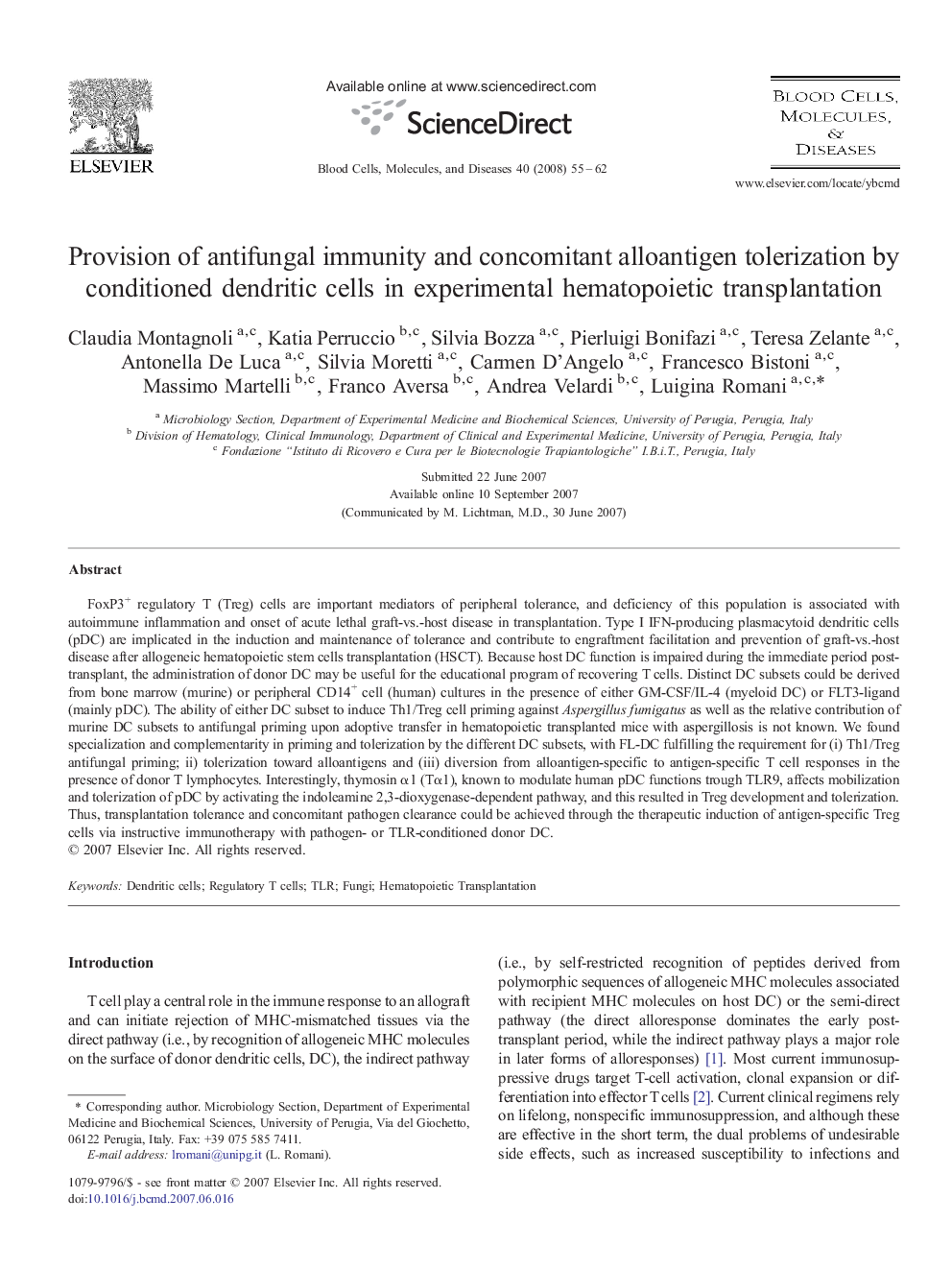| کد مقاله | کد نشریه | سال انتشار | مقاله انگلیسی | نسخه تمام متن |
|---|---|---|---|---|
| 2828086 | 1162475 | 2008 | 8 صفحه PDF | دانلود رایگان |

FoxP3+ regulatory T (Treg) cells are important mediators of peripheral tolerance, and deficiency of this population is associated with autoimmune inflammation and onset of acute lethal graft-vs.-host disease in transplantation. Type I IFN-producing plasmacytoid dendritic cells (pDC) are implicated in the induction and maintenance of tolerance and contribute to engraftment facilitation and prevention of graft-vs.-host disease after allogeneic hematopoietic stem cells transplantation (HSCT). Because host DC function is impaired during the immediate period post-transplant, the administration of donor DC may be useful for the educational program of recovering T cells. Distinct DC subsets could be derived from bone marrow (murine) or peripheral CD14+ cell (human) cultures in the presence of either GM-CSF/IL-4 (myeloid DC) or FLT3-ligand (mainly pDC). The ability of either DC subset to induce Th1/Treg cell priming against Aspergillus fumigatus as well as the relative contribution of murine DC subsets to antifungal priming upon adoptive transfer in hematopoietic transplanted mice with aspergillosis is not known. We found specialization and complementarity in priming and tolerization by the different DC subsets, with FL-DC fulfilling the requirement for (i) Th1/Treg antifungal priming; ii) tolerization toward alloantigens and (iii) diversion from alloantigen-specific to antigen-specific T cell responses in the presence of donor T lymphocytes. Interestingly, thymosin α1 (Tα1), known to modulate human pDC functions trough TLR9, affects mobilization and tolerization of pDC by activating the indoleamine 2,3-dioxygenase-dependent pathway, and this resulted in Treg development and tolerization. Thus, transplantation tolerance and concomitant pathogen clearance could be achieved through the therapeutic induction of antigen-specific Treg cells via instructive immunotherapy with pathogen- or TLR-conditioned donor DC.
Journal: Blood Cells, Molecules, and Diseases - Volume 40, Issue 1, January–February 2008, Pages 55–62